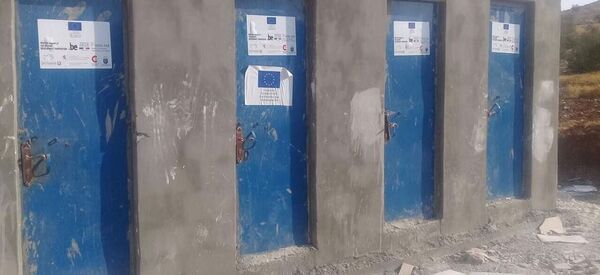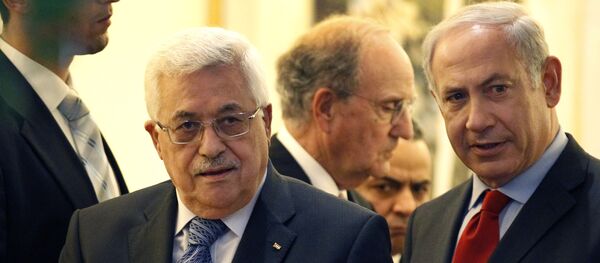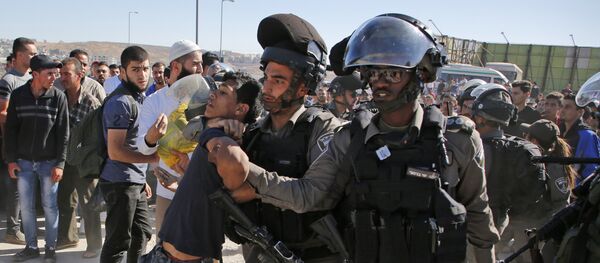The internationally recognized Palestinian government, headed by President Mahmoud Abbas, has held a cabinet meeting in Hamas-controlled territory of Gaza for the first time since 2014.
Commenting on the recent effort of the two factions to end their decade-long split, Abdulsattar Qassem, a political science professor at An-Najah University in the northern West Bank city of Nablus, told Sputnik that the Palestinians do hope that this reconciliation will work out and mark a new era in the relationship between the Palestinian parties.
A delegation led by Palestinian Prime Minister Rami Hamdallah met leaders in the Gaza Strip on Tuesday amid difficult negotiations for Abbas’s Palestinian Authority, which runs the West Bank, to take over the administration of Gaza.
Hamas, which has been labeled a terrorist group by Israel, the EU and United States, seized the Gaza Strip from Fatah forces loyal to President Mahmoud Abbas back in 2007. For years, the Palestinian factions have struggled to reconcile, but their attempts have ended in failure.
Professor Qassem, however said that he personally is not optimistic, and explained why.
"We have a long experience with the reconciliation accord between Fatah and Hamas. They had reached seven accords before, none of which had been implemented […] There are two other parties which interfere in this decision-making process, and these parties are the US and Israel. Would they ratify any kind of an agreement between the two factions? " he wondered.
The US, he said, would never support the settlement of this conflict. On the contrary, Washington is a problem-maker. Israel, for its part, will continue reining over the Palestinians. It won't lift its embargo until the Palestinians abandon their weapons. However, the elimination of weaponry means the elimination of Hamas, which only complicates the whole process.
"We know from our historic experience that neither the US nor Israel are seeking peace in this region[…] They usually make problems inside Arab countries, including Palestine. Hence Palestinians do not trust them, judging by the hypocritical behavior of these two countries. Palestinians should not be naïve, they should be careful and their eyes should be open regarding US policies in the area," the political scientist said.
"If we cannot finance ourselves, how can we have free political will? The Palestinian Authority [government] unfortunately has made its people a puppet of their enemies. It does not pursue any economic policy aimed at gaining economic independence. There should be radical political changes in the structure of the Palestinian Authority and the structure of the Palestinian factions," he said.
One of the ways out, he suggested, if for Hamas to stop its military resistance to the Israeli occupation. Otherwise Israel could stop financing the Palestinian Authority, which would then be unable to provide for itself and would collapse.
However there are two contradicting political policies pursued by Palestine, Professor Qassem said. One supports the military resistance to Israel, while the other supports negotiations. The negotiations have failed for 24 years, having achieved nothing for the Palestinian people. The resistance had been battled by the Arab countries and by the Palestinian Authority itself.
Meanwhile on Tuesday, Ismail Haniyeh, a senior Hamas political leader, rejected the call of President Mahmoud Abbas for the group to hand over its weapons to the Palestinian Authority. He explained that there are two types of weapons deployed in Gaza. One is the weaponry of the government, the police and security services.
The other, he said, are the weapons of the resistance.
"Regarding the weapons of the resistance, as long as there is a Zionist occupation on Palestinian land, it is the right of the Palestinian people to possess weapons and resist the occupation in all of forms of resistance," he said.
Hamas, however. is ready to discuss other reconciliation options with Fatah, the politician concluded.







